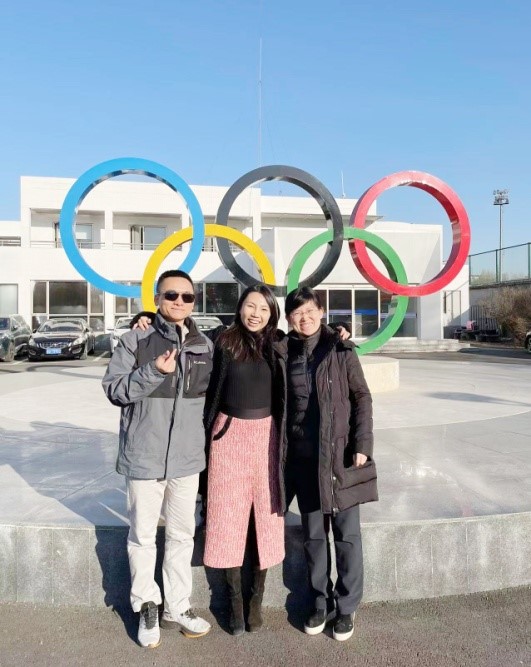In June 2021, I reported to the Beijing Organizing Committee for the Olympics in Shougang Park in the west of the city with my laptop in hand, starting my journey of providing medical services for the Winter Olympics. It was summer, and it was hard for me, a novice in sports, to imagine what life would be like as a Medical Manager at a Winter Olympics venue. After 8 months of hard work, I finally realized that the success of the Beijing Winter Olympics was attributable to everyone involved in the grand event.
As Medical Manager, I was the first person in the medical team to enter the venue. At first, I thought medical service for large sport events was all about ensuring proper on-site medical treatment and rescue during the games. In fact, that was only the tip of the iceberg. There were so many tasks involved, from the site selection for the medical service station in the venue, setting up an additional medical service station, adding professional medical volunteers, to the writing of all types of documents involved, the team building, and the food, clothing, accommodation and mobility, among other daily necessities, of medical service personnel in the venue; from adding emergency vehicles, operation planning of medical service stations, to the formulation of the medical service station’s list of supplies; from technical equipment booking, white goods booking, infrastructure drawing, construction and acceptance, to personnel pre-job training, all-elements and whole-process drills in each venue, and site survey by medical service personnel. Taking on each of these tasks is like fighting a hard battle; to tackle each difficulty, we relied on team communication and collaboration, and the success in overcoming each difficulty brought us closer to the completion of the construction of the medical service station, and also closer to the successful unfolding of the event.
I feel fortunate and grateful that there are two outstanding and brilliant Medical Officers in the medical service team, whose ingenuity and excellence made the medical service team well-known in the venue and even reached the medical headquarters of the IOC; that we have a dream team who reviewed and improved solutions in one drill after another and made it possible for us to transfer patients to the PUMCH Winter Olympic Ward in less than one hour since the start of emergency care on site; that PUMCH, the No. 1 ranking hospital for 12 consecutive years and also the big family for all the team members, is the designated hospital for the Olympics and it has readily accepted all my seemingly unreasonable requests; that the Venue Team has imparted a great deal of knowledge in every aspect to us during our cooperation and lent a hand to us when we ran into difficulties; that the leaders and colleagues of the medical service unit under the Organizing Committee, the leaders from Beijing Municipal Health Commission, our hotel, the peers from other designated hospitals have all treated us with kindness and warmth, explained everything to us with patience and helped us address various issues, etc.
I have developed a reputation for “never resting”, just like a mom, and the team members jokingly call me that. But I am happy to get such as nickname. The Olympic Games are still unfolding, and I hope that the medical service team can proceed in a solid and reliable manner and embrace the coming spring on snowboards.

From left to right: Chen Gang, Shi Di and Lin Chen
Written by and picture courtesy of Shi Di from the Department of Emergency
Translator: Liu Haiyan
Editor: Wang Yao
